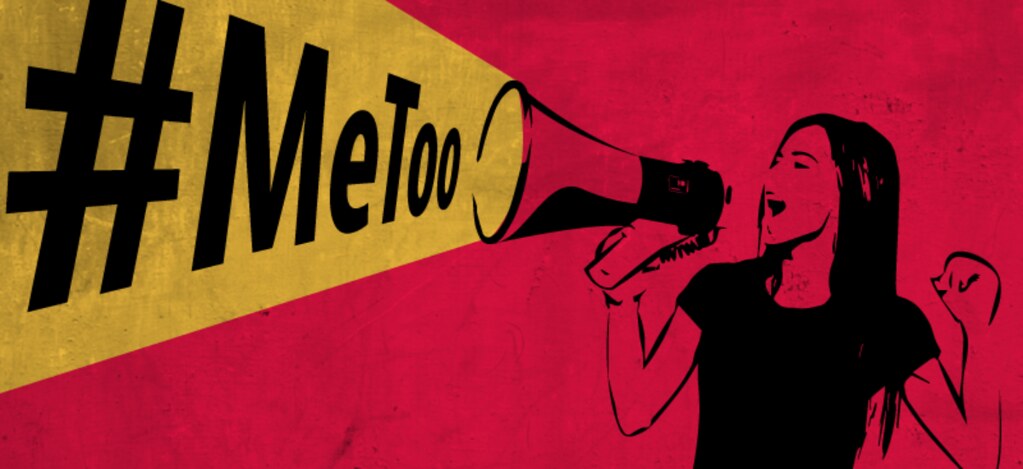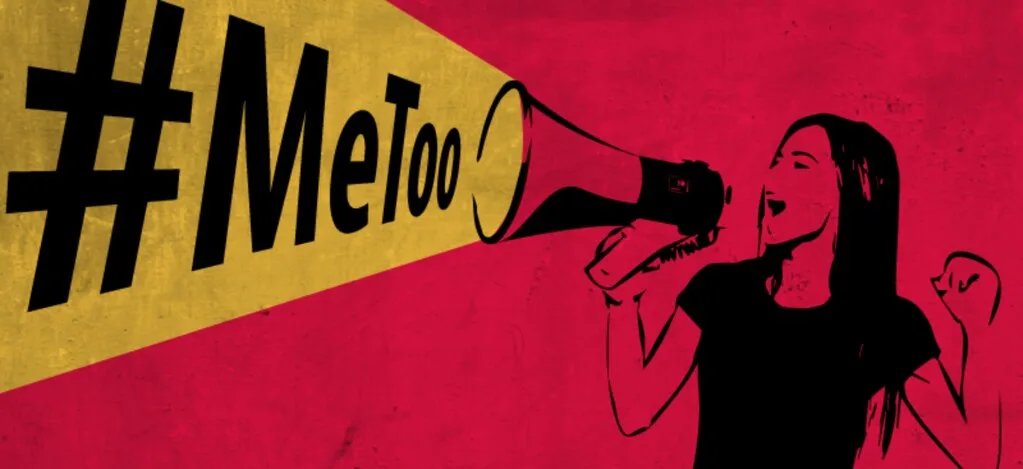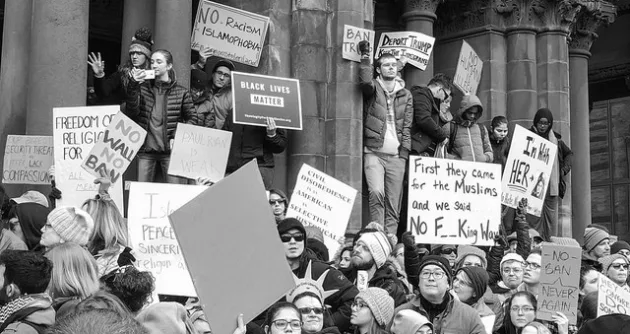Changing the Purpose of the Law
We exist in the #MeToo era. The cultural change that has been advanced by women speaking out about sexual harassment and abuse has been — and continues to be — phenomenal. This moment digs at something deep. The repression of women’s’ autonomy and political power has been central to oppressive, extractive, and ultimately genocidal political regimes across human history.
Though not unique to corporate legal systems, the repression of women was central to the expansion of such systems across the world — as men targeted women as part of violent colonization. The political regimes those men forged subordinated the most basic human rights, and the natural world, while repressing women’s power as a tool for their domination. They learned that if you repress women, the rest follows.
Creating Hierarchy
For example, Sylvia Federici explains in her book Caliban and the Witch that the English and British colonial witch hunts and attacks on women, throughout colonization, was fundamental to creating a hierarchy of humanity and citizenship. “It was also a strategy of enclosure,” she writes, “which, depending on the context, could be enclosure of land, bodies or social relations. Above all, as in Europe, witch-hunting was a means of dehumanization and as such the paradigmatic form of repression, serving to justify enslavement and genocide.” Women were not citizens as the empire criminalized autonomous women at home and abroad.
As the military leaders, kings, and vigilante white men behind this dominant system of government made gains, they did a cunningly good job of institutionalizing those wins. As they forged ahead, they simultaneously constructed structures of law to perpetuate their dominance. Structures which we live with to this day, and, as a result of our lifelong conditioning to the “norms” of colonization, we often treat as unassailable values.

The Consequences: Women Remain Without Equal Rights
For example, under the United States constitution, women still are not recognized with true equal protection under the law. One of the ways that plays out is through the property rights of business proprietors outweighing the right to equal pay for equal work.
Just last November, California was taken to court (again) for passing a “first-in-the-nation law requiring publicly held companies to put women on their boards of directors,” according to the Associated Press.
The plaintiffs argue that states have no power to require private companies (corporate property vested with constitutional rights) to have women on their boards. Their lawsuit is bolstered by U.S. Supreme Court precedent that has argued the U.S. Constitution’s equal protection language in the 14th amendment does not apply to women and their rights. It is also buoyed by the Supreme Court’s unprecedented bestowal of equal rights upon property chartered as a corporation.
Forging Ahead
Shortly after California was sued, a newly Democratic-controlled Virginia legislature took steps to ratify the Equal Rights Amendment (ERA). The ERA was adopted by Congress in 1972 and sent to the states for ratification to recognize equal protection under the law for women.
For years, women fought for the ERA’s ratification. But the required 38 states never signed on.
In January 2020, however, Virginia became the 38th state to ratify the amendment.
Unfortunately, Virginia’s vote may have been symbolic only. The deadline to ratify the ERA expired in the 1980s, when only 35 states gave their approval. (There is some disagreement as to whether, constitutionally, the deadline must be followed.)
Regardless, the momentum of the #MeToo movement must be driven into the institutions of power, or, like so many political moments, it risks disappearing with the fashions of the day. When corporate property gained equal rights, they were immediately codified in the constitution. That’s how power works. Securing this moment requires that the reins be wrestled from the current system of power, to drive structural change for true equality for women. And that means taking a serious look at constitutional law and its priorities.
Driving Legal Change
The Community Environmental Legal Defense Fund stands ready to work with any group or organization willing to fight to address the injustices that have been institutionalized within legal doctrine. That means driving legal change to establish and elevate equal protection for women, human rights to water, to self-determination, and the rights of ecosystems — in the face of corporate backlash.
We must make the choice to frontally challenge unjust legal doctrines.
The group suing California told the Associated Press, “The Constitution is meant to ensure that people are free to be individuals. Here, the law assumes that people of the same sex are essentially interchangeable.” The California Chamber of Commerce calls the California law discriminatory.
Shortly after the lawsuit, Illinois, presumably wary of legal action, took steps to water down a similar proposal.
Democracy and democratic decision-making should not be beholden to corporate legal privileges, or affluent power structures. On the contrary, those most affected by governing decisions should be the ones making them.
The #MeToo movement will prove only to be a passing moment in history unless women are the ones making governing decisions that impact them. That requires a frontal challenge to oppressive corporate power structures used to uphold inequality that exploits women, marginalized peoples, and ecosystems. We should hear the #MeToo mantra as a demand for equality of all before the law, and the subordination of every interest opposed to that equality.
Join us. Together, we will build an equitable movement



